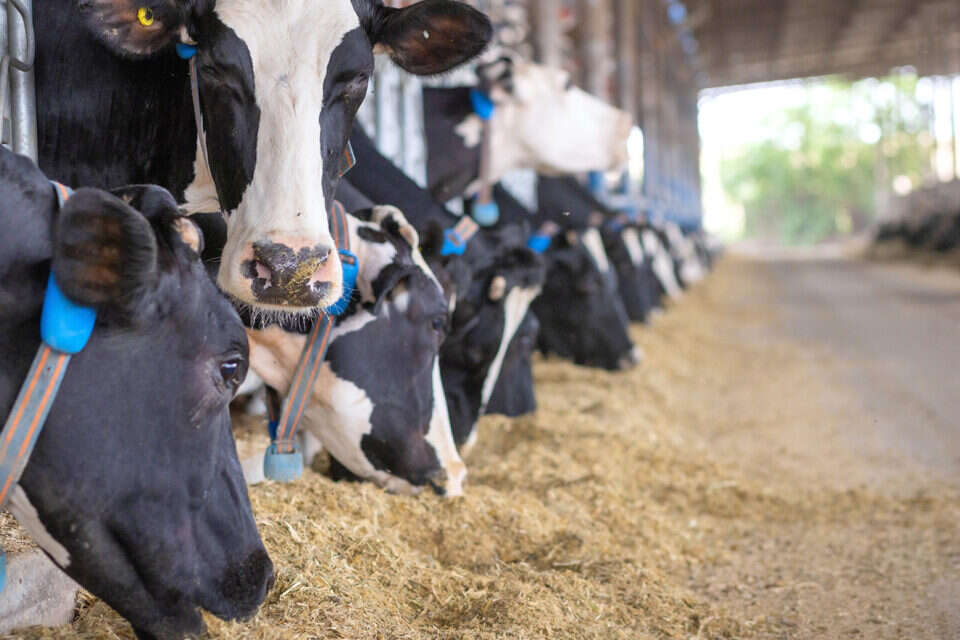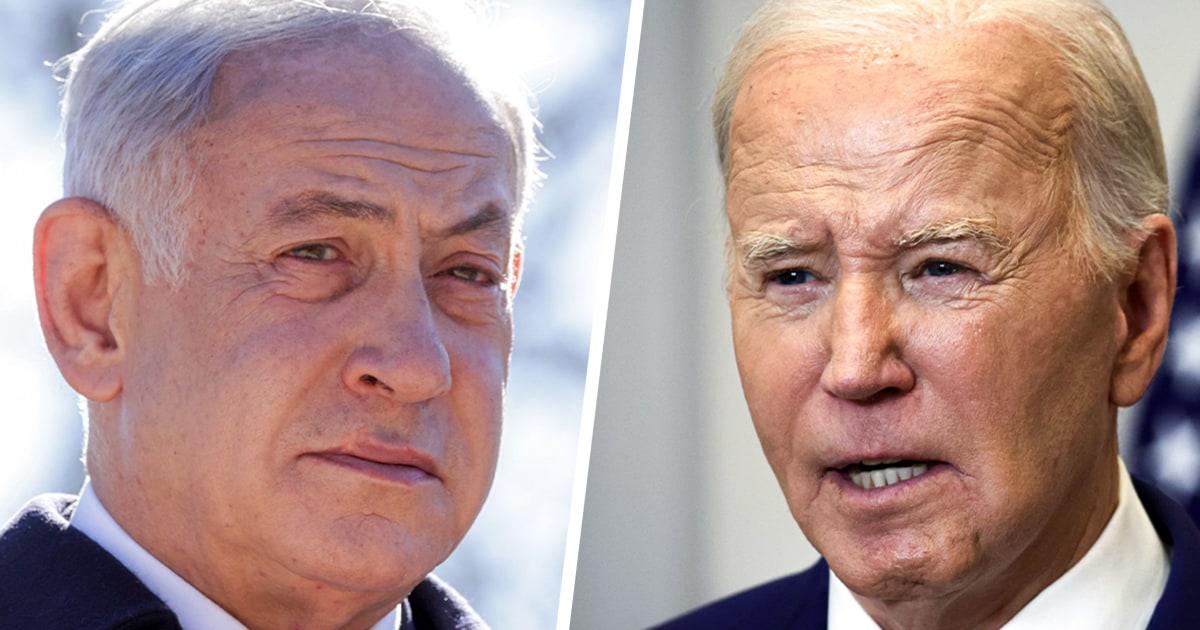On the eve of Shavuot, the cheesecakes will be pulled out of the refrigerator, and the pies will come out of the oven in perfect timing. Dairy products bloom every Shavuot and the cows receive a pat on the back, as a thank you for their fine produce, a long-standing tradition, certainly in kibbutzim and moshavim.
But despite the festive feeling, everyone knows that the dairy farm industry in Israel is not what it was - a symbol of Hebrew agriculture. This is an industry that has been losing momentum and manpower over the years, and is struggling forcefully for its place between the prevailing modernization and the threat of imports from abroad as part of the struggle against the cost of living. The younger generation no longer stepped into the shoes of their ancestors, most of the family dairy farms closed or reunited, leaving only those for whom the cow is part of the landscape of their lives.
"Our industry is aging," says Peretz Ben-Yehoshua, who at age 94 is still going down to the cowshed to help his sons, his successors. "Most of the moshavim members already after the army understand that they can succeed in other territories. And when someone says, 'But you get rich from milk,' they explode and say, 'Take the business, there are much easier places to live from.' After all, it was Prime Minister Levi Eshkol who said at the time that the cow was an enemy.
"He didn't understand what her role was. He only realized that she needed food and water throughout the year, and it costs the tower a lot. He is not like that great professor from the United States who said that the cow is the mother of humanity, eats what we throw away and gives us back the basic nutritional products - meat and milk."
Ben-Joshua. "Levi Eshkol said that the cow is an enemy, because it needs food and water," Photo: Arik Sultan
Moshav Be'er Tuvia, near Kiryat Malachi, is considered one of the fathers of dairy farming in Israel, producing about 40 million liters annually. But a short stroll through its manicured streets reveals quite a few abandoned cowsheds. Once there were more than 70 milking parlors, today there are 20 left.
"To produce milk is not to push a button," says Guy Golan, a dairy farmer in the moshav and a third-generation dairy farmer. "It's a machine that takes about two years to start producing. Why? Because the cart can only be inseminated when it is 14 months old. And if all is well, enter a period of nine months of pregnancy. On the order of two years until she gives birth and begins to give milk.
"Think there are 300 such machines here. If I have someone to sell the produce to, then I'll keep them, but if the market shrinks, the number drops to 200. And the lower the quantity, the less efficiency will be. In Europe and the US, if I can't sell to one dairy, I'll sell to another. There are enough clients. Here I can't sell to Arab countries. I live on an island and have to plan. In 2000, there was a reform in the industry, and quite a few dairy farmers dropped out. Today it's the field of the good guys only. The war is between the good and the very good."
The grandfather who knew Trumpeldor
Be'er Tuvia was founded as a colony in 1888 by families who came from Bessarabia. This is a settlement that underwent reincarnation until it was destroyed in the pogroms of 1929 by Arab rioters who burned the barracks.
A year later, the community was reestablished with the help of the Jewish Agency and the Jewish National Fund. 44 families came from the Upper Galilee, mainly from Tel Hai, Kfar Giladi and Mahanayim. Peretz arrived with his parents at the new moshav, his father Chaim was one of the fighters of Tel Hai, it is said that he was the one who called for help and shouted in March 1920 that Yosef Trumpeldor had been shot, just at those dramatic moments when the fighter and leader released the immortal sentence: "It is good to die for our country."
The settlers in Be'er Tuvia initially built on a large orange orchard. But until it bears fruit, the agency has decided to help with a few cows that will give them employment and maybe some livelihood.
"We were the largest cowshed in the moshav, with 8 cows. After that, we grew to 12," Peretz says. "When I was maybe 4 years old, one of them gave birth and her stroller became my friend. Everywhere I went, she was after me. One day I was lost and my mother was frightened. My older brother Yaakov said he would find the cart and probably locate me next to it. Since then I've probably become a dairy farmer, and believe me it's been hard physical work. There was no road here, but a dirt road. In winter, trucks couldn't come. The farmers would put the milk jugs on carts, and ten horses would take them all the way to Masmiya."
The moshav went through quite a few difficult days and economic crises, but even in the large assemblies they decided to keep the cowsheds active. Here, too, you'll find the common black and white Holstein cow. These cows were initially brought from Holland and Canada and mixed with Damascus cows from Syria to get used to the harsh climatic conditions.
Peretz Ben-Yehoshua, 94, who still works every day: "Most of the moshavim members already after the army understand that they can succeed in other territories. And when someone says, 'But you get rich from milk,' they explode and say, 'Take the business, there are much easier places to live off of.'"
"There was always an active cattle committee in the moshav and the fruiting of breeding fruit, which was not found elsewhere," says Guy Golan. "It's an older moshav than many moshavim in the area and also from some of the kibbutzim. Another thing I can say about the moshavniks from Be'er Tuvia - they are disciplined. When a decision was made, everyone would act."
Guy, 60, went to study agriculture at the Ruppin College as a young man. But he had no doubt that he would return to the cowshed, which had been in his blood ever since he stood up. "My son, who is currently in school, and my daughter, who has just been discharged from the army, work with me," he says. "I told them that the road here goes through academia. If school sends them somewhere else, great. And if the studies bring them here, then at least they will come upgraded."
Barak Tzur, 32, had no choices. He is the fourth generation dairy farmer in Be'er Tuvia, his great-grandfather and great-grandmother were members of the colony and lost cattle in the riots of <>. His father Yoav was one of the mythological figures of the settlement, identified from afar by the cowboy hat he used to wear and also by the toughness with which he raised his sons, Barak and his older brother Itamar.
"We grew up in a Spartan home," Barak admits. "When we were kids, Dad would say, 'Take your watches off,' and we'd have Krav Maga with him on the grass of the house. We would pounce on him and he would beat us. We would go to the nearby military base and carry out tank escape exercises. During Operation Defensive Shield, my brother was under 15 years old. He came with a shuffle to open the route for the tanks so that they would board the leads to Jenin."
Did you want to be a dairy farmer?
"We used to walk with Dad in the moshav. He was a two-meter-tall bully. He would tell me: 'Barak, one day all this will be yours.' My brother would say: 'That idiot who doesn't know anything? He didn't come to work at all.' Another day my father would say: 'All this will be yours, Itamar.' And I was angry: 'He didn't finish school and you want to let him run?'"
Barak Tzur. "You can speak to my cows in English, because all their genetics are American," Photo: Eric Sultan
The dilemma was tragically resolved on 3 August 2006. During the Second Lebanon War, Sergeant Itamar Tzur's tank was hit by an anti-tank missile, killing him and two of his comrades. "I was 14 and a half years old at the funeral procession," Barak recalls. "We went behind the Kommandaker who carried the coffin. Dad said, 'Oh dear if anyone from the family cried. I don't want Hezbollah to see us crying. They won't exist when we're done with them.'"
Yoav may not have cried then, but since his son's death he has worn only black clothes and died of cancer in May 2017, leaving the family business to the supervision of his wife Tzofi and his son, who was only 25 at the time. "I've been arguing for years that if you look at the number of bereaved parents who died from serious illnesses, you'll reach an insane number," Barak says.
"In bereavement or the death of a loved one, there is a decision: either you are alive, or you are dead. And after my brother died, we said that we understood that he would no longer return and that we had to continue living and developing. After my father passed away, I woke up in the morning and asked, 'What now?' There were big debts that had to be repaid and we were able to get back on our feet because of great efficiency and thanks to my mother, who invested most of her efforts and money she saved to clear the table and start over. Today we are in a much better place."
The Tzur family's milking parlor currently includes seven dairy farmers from the village, with 700 cows in total, and produces seven million liters of milk a year. This is a leap of a few steps from the days of the first settlers who established the dairy industry in the moshav. If they were low-tech, today is a completely different era.
"I keep going because I'm good," Barak says. "I'm developing an algorithm here that checks a cow's profitability by weight. She is weighed three times a day while she goes to the milking parlor, and we know how much fat and how much protein and how much milk she produces, and analyze the economic value against the amount of food she consumes. In the end, a decision is made whether it will stay or be sold to another cowshed. High-tech people come and say it's psychic what I'm producing here."
Today's barn is no longer rusty irons and haystacks, but all computing and graphs. The cow has several microchips in the body that check her condition at any given moment. "You know the daily milk yield, the number of steps she took during the day, the amount of time she spent and even rumination data," says Guy Golan.
"These three things give an indication of her well-being. If she walked a lot, she probably demands, so order the sower. And if she walked a little and flipped a lot, then she might be sick. If she's ruminating, it's normal, but if she just looks fine and doesn't ruminate, something may have gone wrong. Sometimes we know earlier than the cow if she's on her way to getting sick."
Israeli cow breaks records
In order to overcome the Israeli summer and so that the heat does not damage the carefully constructed mechanism, the cowsheds operate huge fans, and the cows undergo a quick 40-second shower every few hours, especially in the summer, to lower their body temperature. Barak, for example, uses thermal cameras that check which of his workers is particularly hot and needs washing.
And the science, it turns out, works: in the 70s, an Israeli cow that produced an average of 7,000 liters of milk now yields 12,70 liters and is considered the world record. There are also those who produce more as a result of advanced treatment, genetics and nutrition. "Their food ration consists of 30 percent grains, corn, barley and wheat, and 20 percent coarse food, which is hay, straw, silage and vegetables," says Guy Golan. "Since Israel always lacks growing land and water, there is always a shortage of coarse food, which is one of the most expensive things. Therefore, feed in a ratio that preserves the health of the cow. If you reduce the ratio, for example, to <> percent coarse food, the cow can suffer. And if you go up, it won't be effective. Things are measured and accurate."
What is the life expectancy of a cow?
"More than 20 years. But because of the intense life, she lives an average of five years with us, of which she has two and a half litters on average."
It's really an exact science.
"The Americans have made mathematical models according to which they are able to discover the genome and know how to predict what the animal's properties will be. It's a small test, you take a few hairs from the calf, send it to a lab in the United States and they come back with the genetic profile. Why is this important? Because raising a heifer for two years until it starts giving milk costs a lot of money. Therefore, if a male calf is born to a cow with excellent milk-producing properties, a sample will be taken from it for testing. And if they find that he carries the qualities of the mother and can pass them on to his daughters, that is what we are looking for. You used to be able to work for five years on Parsh. Today, after a year and a half, you know if you're on the horse."
Guy Golan. "There was always an active cattle committee in the moshav and the fruiting of breeding fruit, which was not found elsewhere," Photo: Arik Sultan
Today we are talking about artificial insemination and a bull that helps bring them into the world of milk-filled carts, and is worth a lot of money to its owners. In the United States, there was a bull formerly called Manfred Justice. Over the years, his name was changed to O-Man because his seed was worth a lot, in millions of dollars. Over the years, the bull has also been awarded a statue.
"You can address my cows in English today, because all their genetics are American," Barak laughs. "I rely only on them. It's true that the Israeli dairy farm is honored in its place, but I have a lot to learn from the Americans before I can say I'm better than them, and I'm not a humble man. You can't compare an American dairy farm of 15 million cows when Israel has 120,15 cows. In Israel, the best cows produce 14,100-17,700 liters a year. I have a friend from Texas who owns a cowshed of 600,<> cows. He flies from farm to farm in a private jet and produces <>,<> liters per cow. When I tell him I'm keeping <>-<> cows, he bursts out laughing, saying that's what he's milked for the last four minutes."
ענף החלב מפוקח, ולכל רפת בישראל יש מכסת ליטרים שנתית שהיא לא יכולה לחרוג ממנה. המחירים נקבעים על האגורה על ידי מועצת החלב: כיום 2.42 שקלים לליטר.
"הענף לא בשליטה שלי", ברק אומר. "בשוק החופשי אתה יכול לקבוע מחיר ולקבל שכר. עניין של היצע וביקוש. אני לא קובע כלום. לא את מחיר האוכל של הפרה ולא את מחיר השכר של העובדים, וגם לא קובע את המשכורות של עצמי. הדרך היחידה שלי להתייעל ולהרוויח היא אך ורק בלהיות טוב יותר.
"רפת ישראלית יודעת להרוויח על פי הדו"חות שיצאו עכשיו 30 אגורות לליטר חלב, אחרי קיזוז הוצאות. היא מרוויחה 40 אגורות אם מדובר ברפתן־על. ב־700 אלף ליטר, אם הוא מרוויח 40 אגורות זה 280 אלף שקלים בשנה. מזה הוא צריך לחיות. אני מלווה רפתות ואומר להם שכל חודש זה כמו משחק של הישרדות".
אתה מצליח לחיות?
"I can exist. I make 15,30 shekels gross a month and work 12 days a month. If I had GPS showing how much I was here, you'd see that I start my day at <>:<> in the morning, take a break at two to get the kid out of kindergarten, come back at <> p.m. and hang out here until <> p.m. There is no end to it.
"I talk to friends, phone calls in the middle of the night. One says, 'That cow is sick and the cart started giving birth at midnight, I'm all dirty and I'm just coming home.' A cowshed is a drag, and I call it a golden cage. Maybe good producers make a profit, but you end up enslaved to business 365 days a year. Why should an Israeli work seven days a week? He doesn't care. He wants to call the office in the middle of the month and say, 'I'm in Italy.' Everyone wants to work less and earn more."
Really, who wants to work like that?
"Who said they wanted to? An Israeli worker comes to me and asks for a salary like mine and a car. Lives in La La Land. But there are veteran dairy farmers who are willing to give the worker everything, because they are tired. They say: 'I don't want to earn anything, I just don't want to do it anymore.' If we take a turn and photograph the cowsheds in Be'er Tuvia, you will see that none of the dairy farmers are under the age of 60, does that make sense to you? And we are still a shining example of the dairy industry in Israel. No one wants to mess with this. And literally it's messing with."
Ahituv, Guy's father, worked in a cowshed until six months ago until he died of an illness. He would get on the tractor even in his last years, he said it was his wheelchair. "A 'successor generation' is a global problem," Guy says. "At some point I agreed that I would no longer be rich and there were no millionaire dairy farmers. The beautiful car you see in the parking is my clerk's. We are humble people. Still, I'm far from miserable, I want to have employment until my last day."
Isn't it physically difficult for you?
"It's not necessarily physical work. I may sweat once a day, but my father worked harder and certainly my grandfather."
Today it is not the fear of physical labor that worries, so much as the fear of the future of the industry. Every time the discussion about the cost of living arises, everyone turns towards the dairy sector and the debate begins about the possibility of opening the market and lifting import restrictions. It started with the cottage protests of 2011, when the price of popular cheese rose by 45 percent in three years and was among the factors that brought tens of thousands of protesters to the streets.
Prime Minister Benjamin Netanyahu and Finance Minister Yuval Steinitz expressed support for opening the market to imports by reducing tariffs. Since then, for example, tariffs on butter imports have been lowered. Although options for fine butter have arrived overseas in recent years, this has not necessarily affected the consumer price.
"I don't underestimate the shekel either, but the importers are much more pigs than the dairy farmers," says Guy Golan. "Dairy farmers have a salary, I'm an employee for that matter. Not pork. My sows can manifest themselves if I build a bigger cowshed. I can earn a bonus if I'm more efficient, but if you produce milk, that's what you get. The price of milk reaches almost seven shekels at the supermarket, and I get maybe 2.5 shekels a liter. There's a gap of more than four shekels that someone else is dealing with."
Barak Tzur is also annoyed by the fact that the dairy farmer is attached to the black headlines that appeared last month, according to which supervised dairy products will increase by 16 percent. "If they open imports today, I'll have a big problem with that," he is convinced. "First of all, it's not certain that the price will be lower. The fact is that the butter market opened and nothing happened. Still, if the State of Israel says, 'I want a free market,' in the long run it will cause damage. I'll ask you a question: If someone translates with money, how much will the milk market cost a family a month, and add another 50 shekels? Today, children walk around in jeans that cost 600 shekels. Now in the industry we are all friends, but in the future, if there are no fixed quotas, it is clear to you that man to man is a werewolf."
The cost - because of food costs
The State Comptroller's report published last May stated that the price of raw milk in Israel per 100 kg is about NIS 219, and 24 percent higher than the average in EU countries – about NIS 177. But, among other things, it says that the high price here can be attributed to food costs, which are more than 33 percent higher than those in EU countries, and weather conditions also have an impact.
"Believe me, I should be more concerned than you about the cost of living," says Barak Tzur. "I live in a rental. A 120-meter house in Be'er Tuvia costs 7,000 shekels a month. And I'm talking about the Kiryat Malachi area, not Tuscany in Italy. Something is wrong here, and it's not necessarily the dairy industry, which is barely poke compared to other things. Electricity went up, water went up. Do you know how much a cow drinks that produces 75 liters a day? 700 cows is 14 thousand liters.
"You install fans, because it's a tough summer, and we have 200 fans. We have electricity bills that reach 50,40-345,198 shekels a month. And what about the food? The dollar rate affects, the war in Ukraine affects. A month ago I bought corn for $<> a ton, and before the war I bought for $<>. If Putin shuts down Egypt for a minute, the price skyrockets. Just as there is a diamond exchange, there is a grain exchange."
Barak Tzur, 32, fourth generation: "I'm developing an algorithm here that checks the profitability of a cow by weight. We weigh it 3 times a day and know how much fat and how much protein and how much milk it produces, and analyze the data for economic value against the amount of food it consumes, and make a decision whether it will stay or be sold."
Peretz Ben-Yehoshua, who years ago served as an adviser to the agriculture minister, told how one of the ministry's senior officials once said that the problems of high prices could be solved by bringing milk from New Zealand, where cows have no problem with quotas and food grows freely in the fields.
"I told him: 'Before you say things like that, come to the food center, where the cows are prepared,'" he says. "At the time, 600,<> tons of oranges were marketed in Israel. He came to a food center and I told him: 'There are about ten thousand tons of orange peels here, and every day they keep pouring more and more. If the cows didn't eat the shells, what would they do with the waste?' In our cowshed every day there is a ton and a quarter of old bread, what would he do with it?"
Peretz, 94, has already seen everything in the dairy market, from ads recommending drinking and consumption to studies recommending substitutes and health trends. "If you want to sell almond milk, you have to say that cow's milk is not as good," he laughs.
"I had a teacher who studied in France and would ask: What's the perfect food? Egg. Why? Because a chick when it hatches, except for the shell, leaves nothing in it. After the egg, it is indicated the milk and its products. The peoples who relied on meat and milk were the Northerners, Vikings, Swedes and Norwegians. And that's where life expectancy is highest. Know how much Dutch milk you drink per year, on average? 400 liters per person. With us, we reach 150 liters."
The food security of the country
Be'er Tuvia is a family settlement, consisting of clans of cow breeders. Peretz still helps his sons Guy and Omer. Guy Golan worked with his father right up until he passed away, and today he works with his children. Barak says that his parents, Yoav z"l and Tzofi, were and remain God to him. Last Memorial Day, he stood on his hind legs so that MK Yaakov Tessler of Torah Judaism would not attend the ceremony at the local cemetery, so that his brother's memory would not be harmed.
"It was like putting a finger in an eye that was already tearing," he still finds it hard to calm down. "To bring someone who has never taken part in the burden, hasn't carried a stretcher and doesn't know what brotherhood of warriors is. He could have said, 'It's big on me, I'm not coming,' and instead they decided on an all-out war. There were bereaved families who said, 'Don't start a war for us in the cemetery,' but on the other hand, someone from the moshav, who is over 90 years old, came to me.
"Her son was a fallen fighter pilot, and she said, 'I want to spend the last few years at his grave. If the MK comes, I won't come.' What's bigger? Unequivocally, he wouldn't have entered. If he had decided to come anyway, there would have been a team of 25 comrades, fighters, who were willing to block roads. I planned an operation, but it's only out of values."
Guy Golan, 60, third generation dairy farmers: "To produce milk is not to push a button. The heifer can only be inseminated when it is 14 months old, and then enter a period of nine months gestation and two years until it gives birth and begins to give milk. And there are 300 such machines here."
Barak lives in a relationship, father to son and is now expecting a daughter. It is a symbol of a disappearing agricultural world - young people, working people, who at night wander among the fields or cows, making sure that the branch developed by their ancestors will continue to live and breathe even when outside, preferring not to soil the collar.
"We want the public to understand that this is the food security of the State of Israel," Barak says. "We are a country surrounded by enemies. No one will take care of us if we don't take care of ourselves. We saw what happened here this month with a bit of war. The damage could have been much greater if the ports had been closed. So it's true that in the end we are a technological and advanced country, but we also need to have something to eat, and I no longer see myself as a dairy farmer. I'm a food factory, just like that."
shishabat@israelhayom.co.il
Wrong? We'll fix it! If you find a mistake in the article, please share with us


/cloudfront-eu-central-1.images.arcpublishing.com/prisa/2MPOQCRTTCJVHEV6VONEC6SDGY.jpg)



/cloudfront-eu-central-1.images.arcpublishing.com/prisa/4YONHSCPG4ACABGF6OJDHHA67A.jpg)

/cloudfront-eu-central-1.images.arcpublishing.com/prisa/7342TRC63KUY2C2BJRV5Z5CBEA.jpg)






